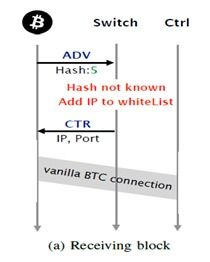Bitcoin Election, A Modern Approach to Voting
In recent years, the concept of using Bitcoin and other cryptocurrencies in the electoral process has gained momentum. This article explores the potential applications, advantages, and challenges of integrating blockchain technology into elections, showcasing a modern approach to democracy.
In recent years, the concept of using Bitcoin and other cryptocurrencies in the electoral process has gained momentum. This article explores the potential applications, advantages, and challenges of integrating blockchain technology into elections, showcasing a modern approach to democracy.

Understanding Bitcoin
Bitcoin, created in 2009 by an anonymous person or group known as Satoshi Nakamoto, is a decentralized digital currency that operates without a central bank or single administrator. As it utilizes a peer-to-peer network to facilitate transactions, its blockchain technology represents a secure and transparent way of recording information, making it an intriguing option for modern elections.

Blockchain: The Technology Behind Bitcoin
Blockchain is a distributed ledger technology that ensures data integrity through encryption and consensus mechanisms. Each transaction is recorded in a block and securely linked to previous blocks, creating an immutable chain of records. This transparency and security could revolutionize the way we conduct elections, addressing critical issues such as voter fraud and ballot tampering.

Potential Advantages of Bitcoin in Elections
The inclusion of Bitcoin and blockchain technology in elections offers several potential advantages:
- Increased Security
- Enhanced Transparency
- Accessibility and Convenience
Utilizing blockchain for voting can significantly reduce the risk of tampering with ballots and voter information. Since each vote would be recorded on a secure ledger, it becomes much more difficult for malicious actors to alter election outcomes.
With blockchain’s public nature, all transactions are visible, which helps build trust among voters. Citizens can verify their votes and ensure that the results are accurate, increasing overall confidence in the electoral process.
Implementing an online voting system powered by Bitcoin allows voters to cast their ballots from anywhere in the world. This convenience could lead to higher voter turnout, especially among younger demographics and those living abroad.
Challenges of Implementing Bitcoin in Elections
While the potential benefits are significant, several challenges must be addressed for the successful implementation of Bitcoin in elections:
- Legal and Regulatory Hurdles
- Technological Barriers
- Security Concerns
Many jurisdictions have specific laws regarding voting procedures. Integrating Bitcoin and blockchain technology into these existing frameworks may require substantial legal adjustments and new regulations to ensure compliance.
Implementing a blockchain-based voting system requires significant technological infrastructure and understanding. Many voters may lack the necessary knowledge to use such systems effectively.
Despite its advantages, blockchain technology is not immune to attacks. Ensuring the highest level of security is crucial to prevent potential threats, such as Distributed Denial of Service (DDoS) attacks that could disrupt the voting process.
In conclusion, integrating Bitcoin and blockchain technology into elections presents a modern approach that could enhance security, transparency, and accessibility. However, it is essential to address the legal, technological, and security challenges before realizing its full potential. As the world continues to evolve digitally, the future of democratic processes may very well depend on these innovations.




